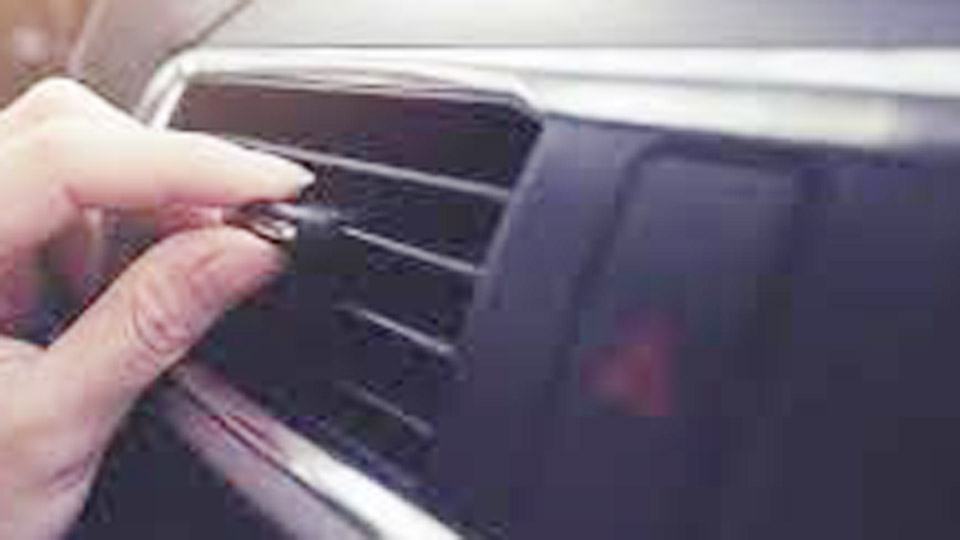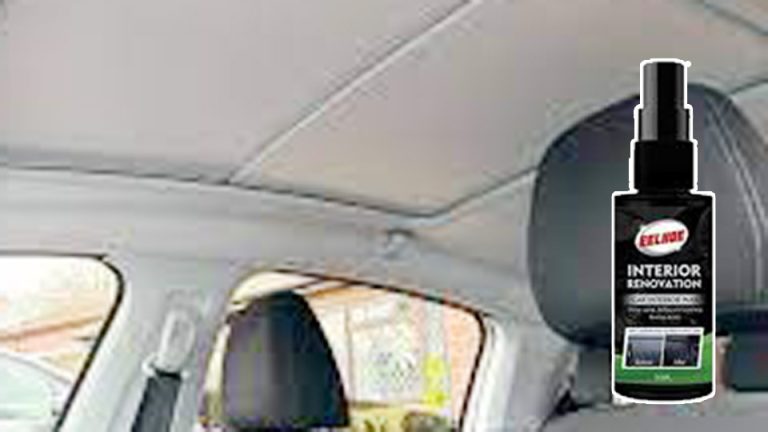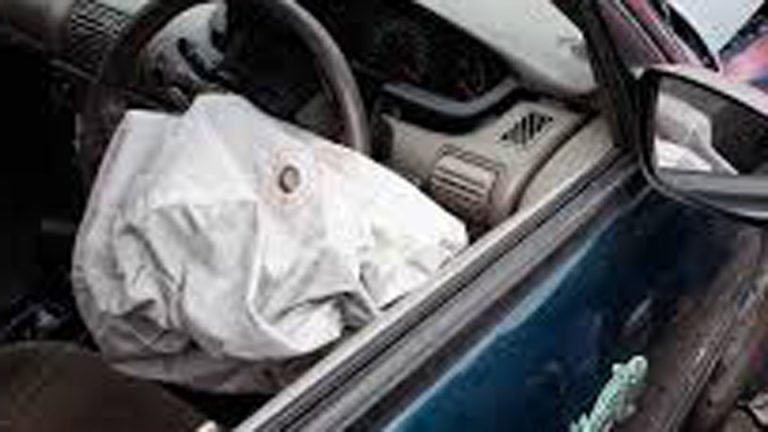It was a sweltering summer day in Texas, and I hopped into my 2011 Nissan Altima, expecting a cool blast of air conditioning to save me from the heat. Instead, the AC blew warm air, barely making a dent in the stifling cabin.
I’d never had issues with the AC before, so I started wondering, “Does the car battery affect the AC?” That question led me down a rabbit hole of troubleshooting, mechanic visits, and lessons about my car’s electrical system.
Turns out, a weak battery was part of the problem, but it wasn’t the whole story. Let me share my journey, from diagnosing the issue to getting my AC—and my car—back in top shape. A car’s battery powers the electrical components, including the AC system, so a weak or failing battery can definitely cause problems.
In my case, it took a mix of DIY testing, a new battery, and a compressor clutch repair to get things blowing cold again. I’ll walk you through what I learned, the steps I took, and how you can figure out if your battery is messing with your AC.

Image by rxmechanic
How the Car Battery and AC Are Connected
Let’s start with the basics. The battery in my Altima is like the heart of the electrical system when the engine is off. It powers the initial startup of the AC system, including the blower motor and control modules.
Once the engine is running, the alternator takes over, charging the battery and supplying power to the AC compressor’s clutch, which engages the compressor to cool the air. If the battery is weak, it can struggle to provide the initial power needed, and if the alternator isn’t charging properly, the AC might not work right either.
In my case, I noticed the AC wasn’t the only thing acting up. The dashboard lights were dim, and the car was sluggish to start. These were clues that the battery might be involved, but I had to dig deeper to confirm.
My First Signs of Trouble: A Weak AC and a Sluggish Car
The trouble started on that hot July day. I’d been driving my Altima for a few months without issues, but the AC suddenly started blowing lukewarm air. At first, I thought it was low refrigerant—my go-to assumption for AC problems.
But I also noticed the car took longer to crank when I turned the key, and the interior lights flickered slightly. These weren’t random coincidences; they pointed to an electrical issue.
I popped the hood and checked the battery terminals. They were a bit crusty with corrosion, so I cleaned them with a wire brush and some baking soda paste. That helped the car start a bit better, but the AC was still weak. I knew I needed to test the battery to see if it was the root cause, so I grabbed my trusty multimeter and got to work.
Diagnosing the Battery’s Role in the AC Problem
I’ve always been hands-on with my cars, so I started troubleshooting in my garage. First, I tested the battery voltage with the engine off. It read 12.2 volts—lower than the 12.6 volts you’d expect from a healthy battery. With the engine running, the voltage should jump to 13.5–14.5 volts, thanks to the alternator. Mine only hit 12.8 volts, which told me the charging system was struggling.
Next, I turned on the AC while watching the voltage. It dropped to 12.4 volts, and the AC compressor clutch didn’t engage consistently—it was cycling on and off. That’s when I suspected the battery wasn’t providing enough juice to keep the AC running smoothly.
To be sure, I took the car to an auto parts store for a free battery test. They confirmed it was weak, with only 60% capacity left after three years of use.
But the battery wasn’t the only issue. The store tested the alternator, too, and it was putting out enough voltage, so I ruled that out. The AC still wasn’t cooling right, so I suspected something else in the system—like the compressor or a low refrigerant level—was compounding the problem.
The Battery’s Impact on the AC: What I Learned
Through this process, I learned that a weak battery can affect the AC in a few ways. First, it may not provide enough power to engage the compressor clutch, which needs a strong electrical signal to kick on. In my Altima, the clutch was stuttering because the battery couldn’t deliver consistent voltage.
Second, a weak battery can strain the alternator, which has to work harder to power the AC and other systems, leading to poor performance. Finally, if the battery is too weak to start the car reliably, the alternator won’t even get a chance to power the AC.
In my case, the battery was part of the problem, but not the whole story. After replacing it, the AC worked better but still wasn’t ice-cold. That’s when I took it to a mechanic, who found a worn-out compressor clutch that wasn’t engaging properly, even with a new battery. The weak battery had been masking the real issue, and fixing publicidad both was the key.
Fixing the Problem: My Repair Journey
Replacing the battery was my first step. I bought a new one for $120 at the auto parts store and installed it myself in about 15 minutes. It was a simple swap—disconnect the old battery, pop in the new one, and tighten the terminals. The car started faster, and the dashboard lights were brighter, but the AC was still blowing lukewarm air. I could hear the compressor clutch clicking on and off, which wasn’t normal.
I took the car to a trusted mechanic who specializes in AC systems. He checked the refrigerant level first—it was fine, so a leak wasn’t the issue. Then he tested the compressor clutch and found it was slipping due to wear.
The repair took about two hours and cost $350, including a new clutch assembly and labor. With the new battery and the clutch fixed, the AC was finally blowing cold air again, and I could drive without Policing without sweating buckets.
The total cost was $470—$120 for the battery and $350 for the AC repair. It wasn’t cheap, but it was worth it to stay cool and keep my car running reliably. If I’d ignored the problem, the weak battery could’ve caused bigger electrical issues down the line.
Challenges I Faced and Lessons Learned
This wasn’t a smooth process, and I hit a few snags. First, I assumed the AC problem was just low refrigerant, which delayed my focus on the battery. Always check the battery first if you notice electrical issues—it’s an easy starting point.
Second, I didn’t realize how interconnected the battery and AC systems were. A weak battery can make the compressor clutch act up, which I only learned after talking to my mechanic.
Another mistake was not maintaining the battery properly. The corrosion on the terminals wasn’t the main issue, but it didn’t help. Regular cleaning could’ve extended the battery’s life. Finally, I learned to get multiple opinions. One shop quoted me $600 for a full compressor replacement, which I didn’t need. My mechanic’s $350 fix was spot-on, and I’m glad I shopped around.
Factors That Affect Battery-Related AC Issues
From my experience, several factors can influence how a battery affects your car’s AC:
Battery Age and Condition: My three-year-old battery was weak, causing voltage drops that affected the AC. Most batteries last 3–5 years, so check yours if it’s older.
Electrical Load: The AC is a power-hungry system. A weak battery can’t handle the load, leading to issues like compressor clutch cycling, like I experienced.
Alternator Health: If the alternator isn’t charging the battery properly, the AC will suffer even with a good battery. My alternator was fine, but it’s worth checking.
Other AC Components: A weak battery can mask other issues, like my worn compressor clutch. If the AC doesn’t improve after a battery replacement, dig deeper.
Here’s a table to summarize the key factors I considered:
| Factor | Impact on AC | How I Addressed It |
|---|---|---|
| Weak Battery | Poor voltage for compressor clutch | Replaced battery ($120) |
| Alternator Issues | Inconsistent power to AC system | Tested alternator (passed) |
| Compressor Clutch | Fails to engage, no cooling | Replaced clutch ($350) |
| Refrigerant Level | Low levels reduce cooling efficiency | Checked by mechanic (normal) |
| Battery Maintenance | Corrosion can worsen electrical issues | Cleaned terminals regularly afterward |
Tips for Preventing Battery and AC Problems
Based on my experience, here are some practical tips to keep your battery and AC in top shape:
Test Your Battery Regularly: Use a multimeter or visit an auto parts store for a free battery test every six months. Catch a weak battery before it affects your AC.
Clean Battery Terminals: Use a wire brush and baking soda paste to remove corrosion. I do this every six months now to avoid electrical issues.
Check the AC System Early: If your AC is blowing warm air, don’t wait. Test the battery and have a mechanic check the compressor and refrigerant levels.
Shop Around for Repairs: Get quotes from multiple shops. I saved $250 by avoiding an unnecessary compressor replacement.
Keep Up with Maintenance: Regular oil changes and electrical system checks can prevent problems that strain the battery and AC.
Frequently Asked Questions
Does a weak car battery affect the air conditioning?
Yes, it can. In my Altima, a weak battery caused the AC compressor clutch to cycle on and off, leading to warm air. The battery didn’t have enough power to engage the clutch properly, but replacing it helped.
How can I tell if my battery is causing AC problems?
I noticed dim dashboard lights, sluggish starting, and a weak AC. I tested the battery with a multimeter and found it was only at 12.2 volts—too low. A store test confirmed it was at 60% capacity.
Can I fix battery-related AC issues myself?
I replaced my battery myself in 15 minutes with basic tools. But for AC issues like a bad compressor clutch, I needed a mechanic. If you’re not comfortable with AC repairs, get professional help.
How much does it cost to fix battery and AC issues?
My battery cost $120, and the AC compressor clutch repair was $350. Battery replacements are typically $100–$200, while AC repairs can range from $200 to $1,000, depending on the issue.
How can I prevent battery and AC problems?
I now test my battery twice a year and clean the terminals to prevent corrosion. Regular AC system checks, like ensuring proper refrigerant levels, also help keep the system running smoothly.




